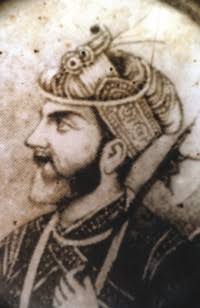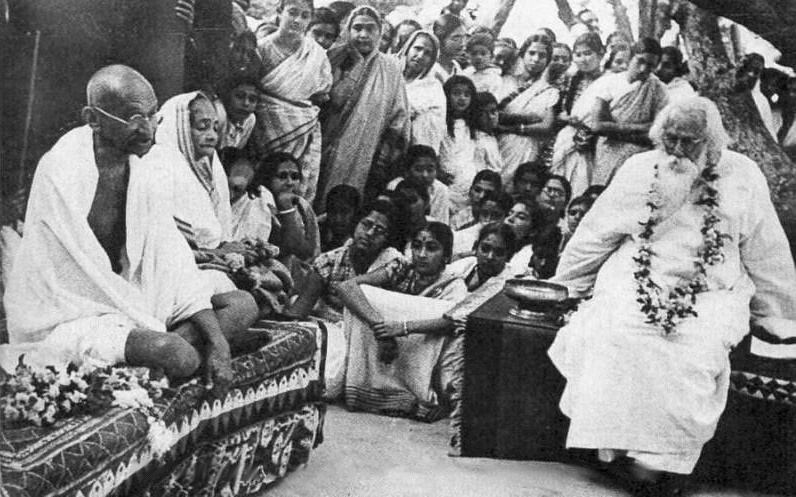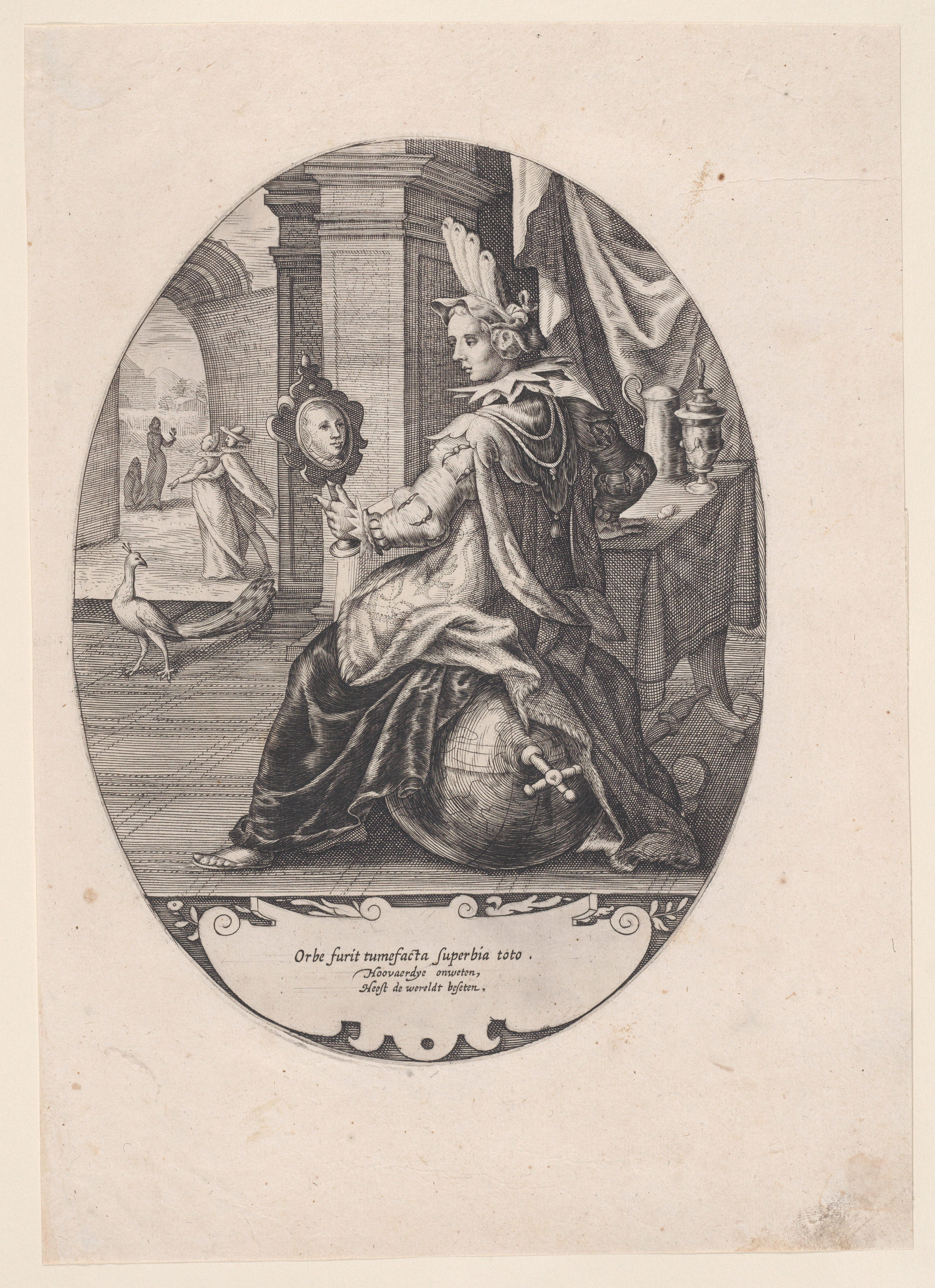|
Ayet Ali Khan
Ayet Ali Khan was a Bengali classical musician. Early life Khan was born in Shibpur Upazila, Shibpur, Brahmanbaria District, Brahmanbaria, Bengal Presidency, British Raj in 1884. He trained under his brothers Fakir Aftabuddin Khan and Ustad Alauddin Khan. He trained in Rampur under Ustad Wazir Khan for 30 years. Career Khan took residence in the Mihir State as court musician. He formed an indigenous instrumental orchestra with his brother. In 1935 he joined Santiniketan as the head of the Music department after Rabindranath Tagore invited him. he left the post over health reasons. He invented two musical instruments, Manohara and Mandrand and developed the surbahar and the sarod. He invented a number of Ragas including Aol-Basanta, Omar-Sohag, Varis, and Hemantika. He established the Alauddin Music College in 1948 in Comilla and in 1954 in Brahmanbaria. From 1961 to 1965 he worked at Radio Pakistan. He was awarded Tamgha-i-Imtiaz in 1961 and in 1966 the Pride of Performance Awards ( ... [...More Info...] [...Related Items...] OR: [Wikipedia] [Google] [Baidu] |
Shibpur Upazila
Shibpur ( bn, শিবপুর) is an upazila of Narsingdi District in the Division of Dhaka, Bangladesh. Geography Shibpur is located at . It has 44365 households and total area 206.89 km2. Demographics As of the 1991 Bangladesh census, Shibpur has a population of 237246. Males constitute 50.77% of the population, and females 49.23%. This Upazila's eighteen up population is 117487. Shibpur has an average literacy rate of 32.3% (7+ years), and the national average of 32.4% literate. Economy Shibpur is a densely industrial area, and is home to many textile mills. Narsingdi gas field is located in the Shibpur upazila under Narsingdi district adjacent to the Dhaka-Sylhet highway about 45 km away of northernmost east direction from capital city of Bangladesh, Dhaka. This field was discovered by Petrobangla in 1990. Total recoverable gas reserves of this field re-estimated by Hydrocarbon Unit is 215 billion cubic feet (6.1×109 m3). Commercial gas production was started ... [...More Info...] [...Related Items...] OR: [Wikipedia] [Google] [Baidu] |
Brahmanbaria District
Brahmanbaria ( bn, ব্রাহ্মণবাড়িয়া, translit=Brahmôṇbaṛiya) is a district in eastern Bangladesh located in the Chittagong Division. Geographically, it is mostly farmland and is topographically part of the Gangetic Plain. It is bounded by the districts of Kishoreganj and Habiganj to the north, Narsingdi District and Narayanganj to the west, Comilla to the south, and the Indian state of Tripura to its east. It was a part of Comilla until 15 February 1984.Musa, Muhammad. Brahmanbariar Itibrittyo, Shetu Prokashoni, Brahmanbaria,1998. History Brahmanbaria was a part of Samatata region of the ancient Bengal. The area Syed Mahmud resided in was named Kazipara (Kazi being a variant of Qadi) after him, and his mazar (mausoleum) remains there. The leader of the Baro-Bhuiyan zamindars, Isa Khan, had his first and temporary capital situated in Sarail. During the Mughal era, Brahmanbaria was famous for producing quality cloth muslin. Brahmanbaria wa ... [...More Info...] [...Related Items...] OR: [Wikipedia] [Google] [Baidu] |
Bengal Presidency
The Bengal Presidency, officially the Presidency of Fort William and later Bengal Province, was a subdivision of the British Empire in India. At the height of its territorial jurisdiction, it covered large parts of what is now South Asia and Southeast Asia. Bengal proper covered the ethno-linguistic region of Bengal (present-day Bangladesh and the Indian state of West Bengal). Calcutta, the city which grew around Fort William, was the capital of the Bengal Presidency. For many years, the Governor of Bengal was concurrently the Viceroy of India and Calcutta was the de facto capital of India until 1911. The Bengal Presidency emerged from trading posts established in Mughal Bengal during the reign of Emperor Jahangir in 1612. The East India Company (HEIC), a British monopoly with a Royal Charter, competed with other European companies to gain influence in Bengal. After the decisive overthrow of the Nawab of Bengal in 1757 and the Battle of Buxar in 1764, the HEIC expanded ... [...More Info...] [...Related Items...] OR: [Wikipedia] [Google] [Baidu] |
British Raj
The British Raj (; from Hindi ''rāj'': kingdom, realm, state, or empire) was the rule of the British Crown on the Indian subcontinent; * * it is also called Crown rule in India, * * * * or Direct rule in India, * Quote: "Mill, who was himself employed by the British East India company from the age of seventeen until the British government assumed direct rule over India in 1858." * * and lasted from 1858 to 1947. * * The region under British control was commonly called India in contemporaneous usage and included areas directly administered by the United Kingdom, which were collectively called British India, and areas ruled by indigenous rulers, but under British paramountcy, called the princely states. The region was sometimes called the Indian Empire, though not officially. As ''India'', it was a founding member of the League of Nations, a participating nation in the Summer Olympics in 1900, 1920, 1928, 1932, and 1936, and a founding member of the United Nations in San F ... [...More Info...] [...Related Items...] OR: [Wikipedia] [Google] [Baidu] |
Fakir Aftabuddin Khan
Fakir Aftabuddin Khan (1862-1933) was a Bengali musician, composer and lyricist. Early life Khan was born on 1862 in Shibpur, Brahmanbaria District, Bengal Presidency, British India. His brothers were the famous musicians Alauddin Khan and Ayet Ali Khan. Career Khan learned to play the violin and tabla at the court of the Zamidar of Bangora. He trained in Tripura Raja's court under the court musician Rababi Qasim Ali Khan. He was particularly talented with a flute and also played the harmonium, dotara, and banya. He invented his own musical instruments called the meghadambur and swarasangraha. He also wrote lyrics for the poems of Manomohan Dutta. He was given the title "Fakir" for his devotion to god and the Goddess Kali Kali (; sa, काली, ), also referred to as Mahakali, Bhadrakali, and Kalika ( sa, कालिका), is a Hinduism, Hindu goddess who is considered to be the goddess of ultimate power, time, destruction and change in Shaktism. In t ... and his a ... [...More Info...] [...Related Items...] OR: [Wikipedia] [Google] [Baidu] |
Ustad Alauddin Khan
Allauddin Khan, also known as Baba Allauddin Khan ( – 6 September 1972) was an Indian sarod player and multi-instrumentalist, composer and one of the most notable music teachers of the 20th century in Indian classical music. For a generation many of his students, across different instruments like sitar and violin, dominated Hindustani classical and became some of the most famous exponents of the form ever, including Ravi Shankar and Ali Akbar Khan. Early life Khan was born in Shibpur village in Brahmanbaria (in present-day Bangladesh). His father, Sabdar Hossain Khan, was a musician. Khan took his first music lessons from his elder brother, Fakir Aftabuddin Khan. At age ten, Khan ran away from home to join a jatra party where he was exposed to a variety of folk genres: jari, sari, baul, bhatiyali, kirtan, and panchali. Khan went to Kolkata, where he met a physician named Kedarnath, who helped him to become a disciple of Gopal Krishna Bhattacharya (also known as Nulo Gopal), ... [...More Info...] [...Related Items...] OR: [Wikipedia] [Google] [Baidu] |
Santiniketan
Santiniketan is a neighbourhood of Bolpur town in the Bolpur subdivision of Birbhum district in West Bengal, India, approximately 152 km north of Kolkata. It was established by Maharshi Devendranath Tagore, and later expanded by his son, Rabindranath Tagore whose vision became what is now a university town with the creation of Visva-Bharati.Pearson, WW.: ''Santiniketan Bolpur School of Rabindranath Tagore'', illustrations by Mukul Dey, The Macmillan Company, 1916 History In 1863, Debendranath Tagore took on permanent lease of land, with two ( Alstonia scholaris) trees, at an annual payment of Rs. 5, from Bhuban Mohan Sinha, the talukdar of Raipur, Birbhum. He built a guest house there and named it ''Shantiniketan'' (the abode of peace). Gradually, the whole area came to be known as Shantiniketan.Basak, Tapan Kumar, ''Rabindranath-Santiniketan-Sriniketan (An Introduction)'', p. 2, B.B.Publication Binoy Ghosh says that Bolpur was a small place in the middle of the 19th ... [...More Info...] [...Related Items...] OR: [Wikipedia] [Google] [Baidu] |
Rabindranath Tagore
Rabindranath Tagore (; bn, রবীন্দ্রনাথ ঠাকুর; 7 May 1861 – 7 August 1941) was a Bengali polymath who worked as a poet, writer, playwright, composer, philosopher, social reformer and painter. He reshaped Bengali literature and music as well as Indian art with Contextual Modernism in the late 19th and early 20th centuries. Author of the "profoundly sensitive, fresh and beautiful" poetry of ''Gitanjali'', he became in 1913 the first non-European and the first lyricist to win the Nobel Prize in Literature. Tagore's poetic songs were viewed as spiritual and mercurial; however, his "elegant prose and magical poetry" remain largely unknown outside Bengal. He was a fellow of the Royal Asiatic Society. Referred to as "the Bard of Bengal", Tagore was known by sobriquets: Gurudev, Kobiguru, Biswakobi. A Bengali Brahmin from Calcutta with ancestral gentry roots in Burdwan district* * * and Jessore, Tagore wrote poetry as an eight-yea ... [...More Info...] [...Related Items...] OR: [Wikipedia] [Google] [Baidu] |
Alauddin Music College
Alauddin (Arabic: علاء الدين) is a Muslim male given name and, in modern usage, also a surname. This name derives from the Arabic ''“ʻAlāʼ ad-Dīn”'', meaning “servant of Allah, nobility of faith, nobility of religion, nobility of the faith”. It is one of a large class of names ending with ad-Din. Given name * Alauddin Khalji, emperor of the Khalji dynasty. * Alauddin Ahammad, Bangladeshi politician and academic * Alauddin Al-Azad (1932–2009), Bangladeshi author, novelist, and poet. * Alauddin Ali, Bangladeshi music composer * Alauddin Marri (b. 1979), Pakistani businessman and social worker. * Alauddin Sabir Kaliyari (b. 1196 AD), South Asian Sufi saint in the 13th century * Alauddin Siddiqui (1938-2017) Islamic Sufi Scholar from Azad Kashmir, Pakistan. * Alauddin (cricketer) (b: 1976), Pakistani former cricketer. * Alauddin Jani, governor of Bengal at 12th century of Mamluk dynasty * Alauddin Ali Shah, independent ruler of Lakhnauti, the old capital of Ben ... [...More Info...] [...Related Items...] OR: [Wikipedia] [Google] [Baidu] |
Brahmanbaria
Brahmanbaria ( bn, ব্রাহ্মণবাড়িয়া, Brāhmaṇabāṛiẏā) is a city of Bangladesh and the capital of Brahmanbaria Sadar Upazila as well as Brahmanbaria District. It is the second largest city after Cumilla in eastern Bangladesh and one of the oldest municipalities in Bangladesh, established in 1868. Brahmanbaria was declared a district headquarters in 1984. Its municipality area has a population of 270,000 in 2020. It is the 17th largest city in Bangladesh. History During the Indo-Pakistan War of 1971 for the liberation of Bangladesh, when Pakistan Army planners predicted India would launch its main attack in the east along the Akhaura–Brahmanbaria axis, it had no brigades available to cover this area, and Pakistan Army moved its 27th brigade from Mymensingh to Akhaura after retaining two battalions of 27th brigade at Mymensingh to form the 93rd Brigade to defend Mymensingh. Pakistan Army's 93,000 troops unconditionally surrendered t ... [...More Info...] [...Related Items...] OR: [Wikipedia] [Google] [Baidu] |
Pride Of Performance Awards (1960–69)
Pride is defined by Merriam-Webster as "reasonable self-esteem" or "confidence and satisfaction in oneself". A healthy amount of pride is good, however, pride sometimes is used interchangeably with "conceit" or "arrogance" (among other words) which are negative. Oxford defines it as "the quality of having an excessively high opinion of oneself or one's own importance." This may be related to one's own abilities or achievements, positive characteristics of friends or family, or one's country. Richard Taylor defined pride as "the justified love of oneself", as opposed to false pride or narcissism. Similarly, St. Augustine defined it as "the love of one's own excellence", and Meher Baba called it "the specific feeling through which egoism manifests." Philosophers and social psychologists have noted that pride is a complex secondary emotion which requires the development of a sense of self and the mastery of relevant conceptual distinctions (e.g. that pride is distinct from happin ... [...More Info...] [...Related Items...] OR: [Wikipedia] [Google] [Baidu] |
Bangladesh Shilpakala Academy Award
Bangladesh (}, ), officially the People's Republic of Bangladesh, is a country in South Asia. It is the eighth-most populous country in the world, with a population exceeding 165 million people in an area of . Bangladesh is among the most densely populated countries in the world, and shares land borders with India to the west, north, and east, and Myanmar to the southeast; to the south it has a coastline along the Bay of Bengal. It is narrowly separated from Bhutan and Nepal by the Siliguri Corridor; and from China by the Indian state of Sikkim in the north. Dhaka, the capital and largest city, is the nation's political, financial and cultural centre. Chittagong, the second-largest city, is the busiest port on the Bay of Bengal. The official language is Bengali, one of the easternmost branches of the Indo-European language family. Bangladesh forms the sovereign part of the historic and ethnolinguistic region of Bengal, which was divided during the Partition of India in 19 ... [...More Info...] [...Related Items...] OR: [Wikipedia] [Google] [Baidu] |






